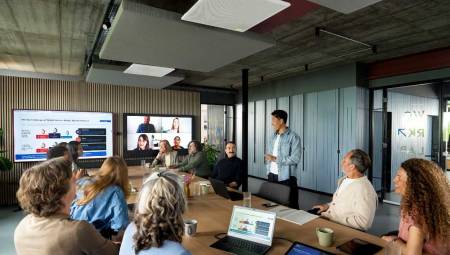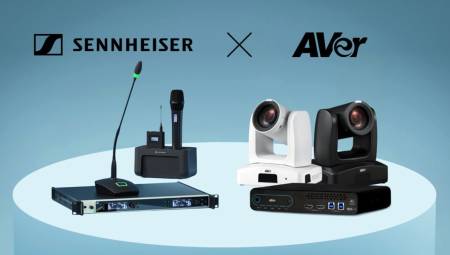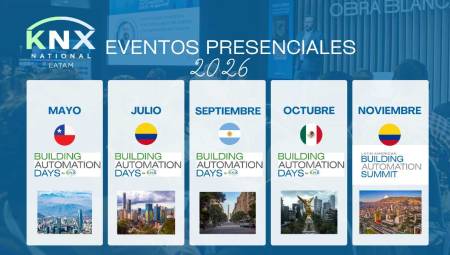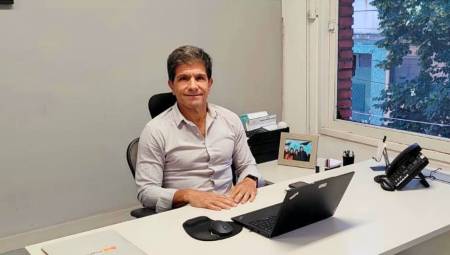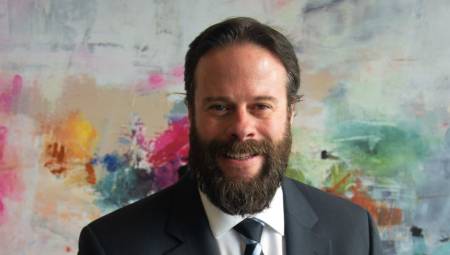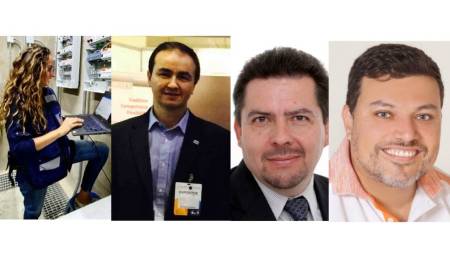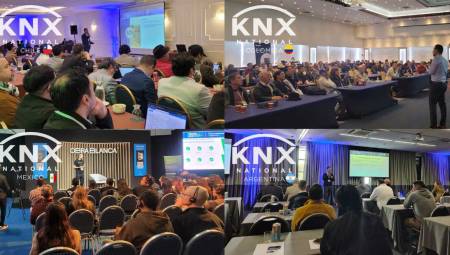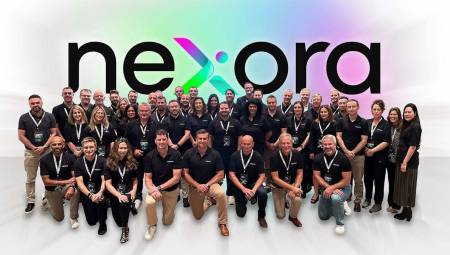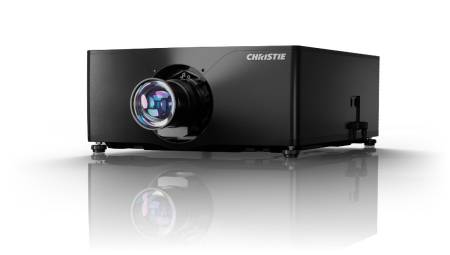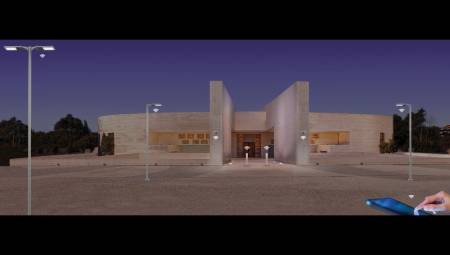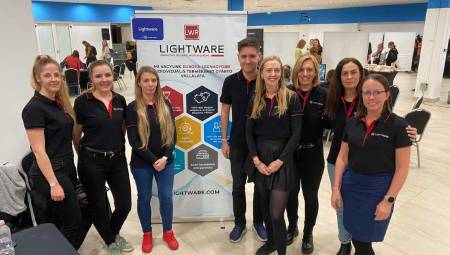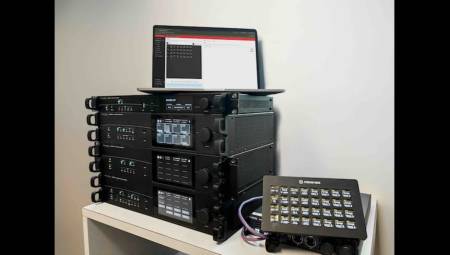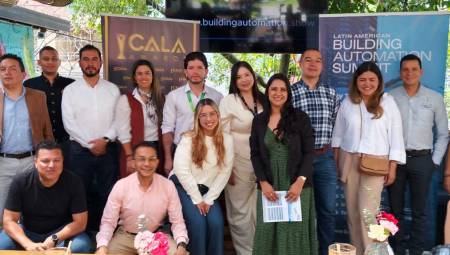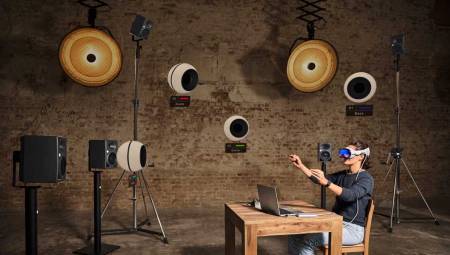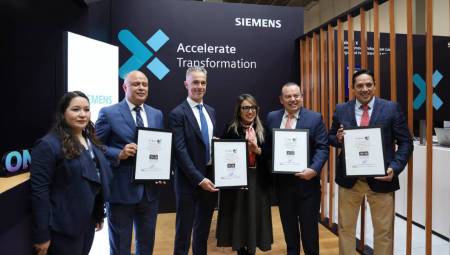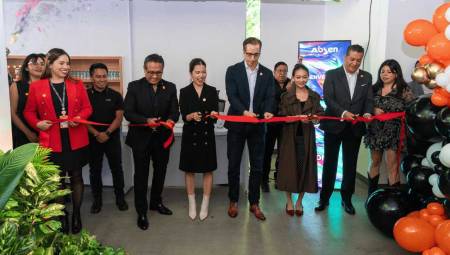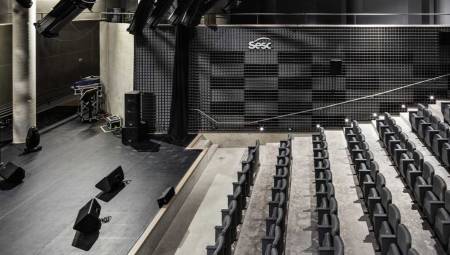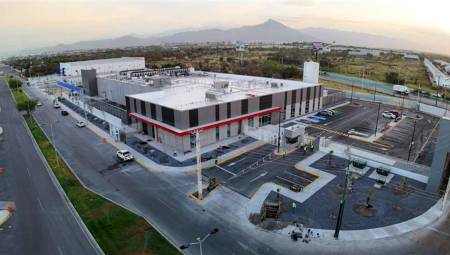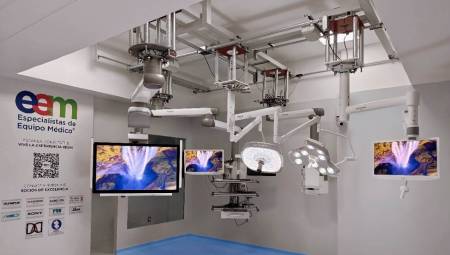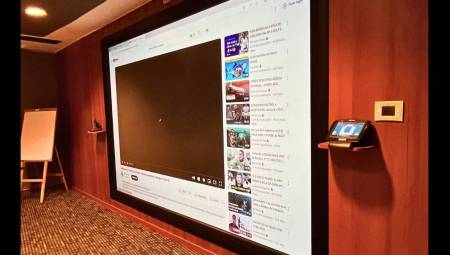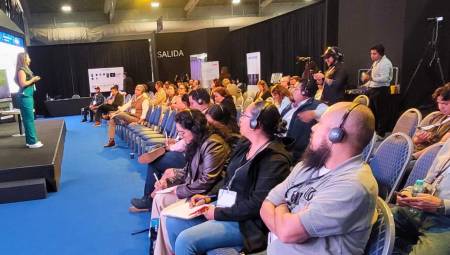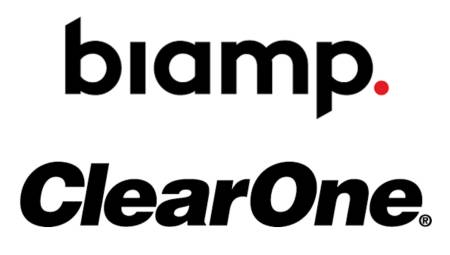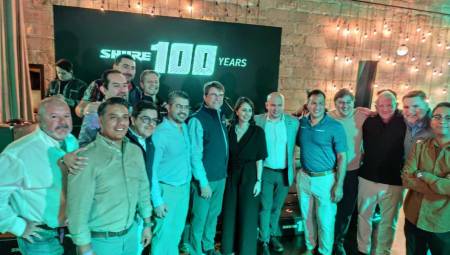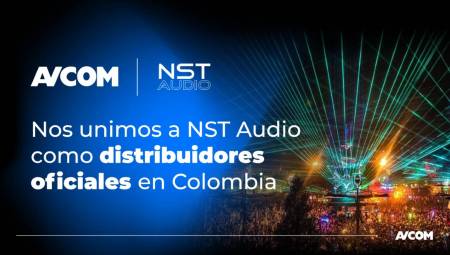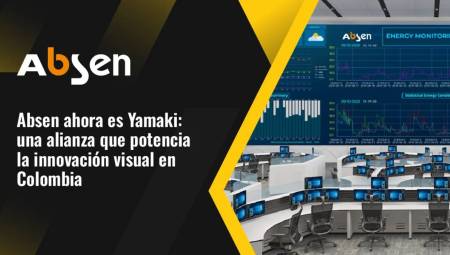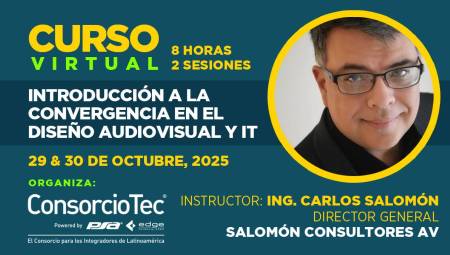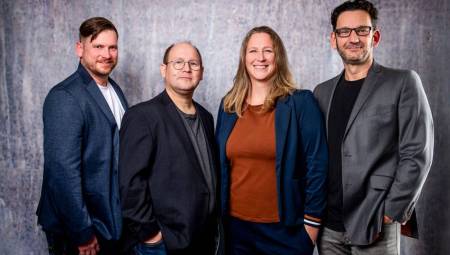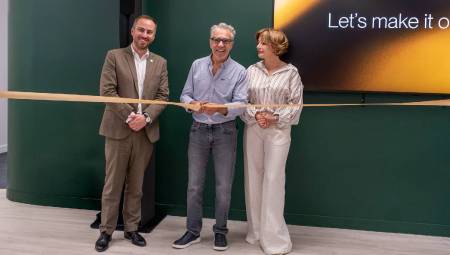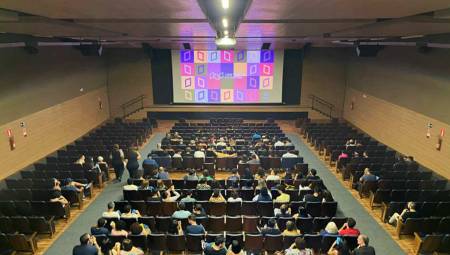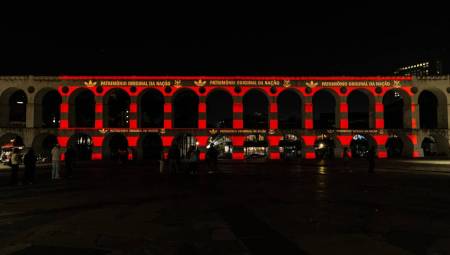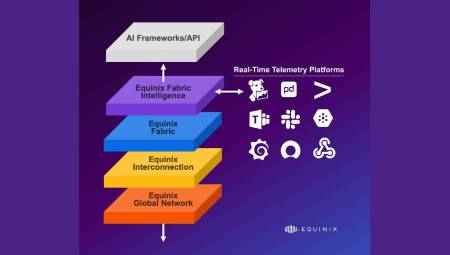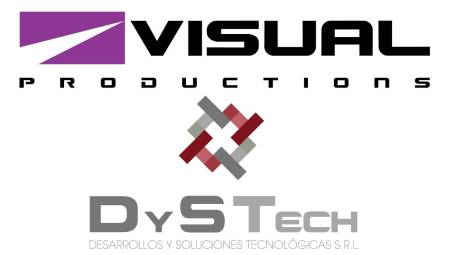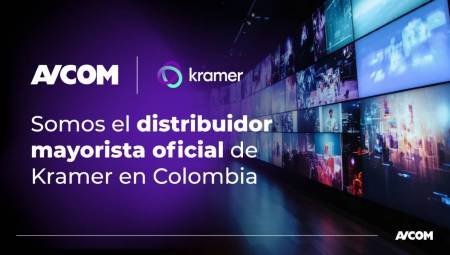InfoComm held its first training course in Colombia. The results were more than positive. The desire to professionalize more and more the daily work was the main characteristic of the audience.
by Julián Arcila
Between March 5 and 7, InfoComm held in Bogotá, Colombia, its training course on the fundamentals of the audio and video industry, a seminar attended by about 40 representatives of renowned audio and video companies in Colombia, Venezuela, Ecuador, the Dominican Republic and Panama.
The course was characterized by the wide and varied information imparted, which, in addition to its ease of apprehension, presented the fundamentals of audio systems, from the production of sound itself, as well as the production of visual signals.
Both for the organizers of the show and for the editor, the event was quite important, initially because it was the most international of the seminars held by the association (of which AVI Latin America is the official publication for the region), but also because of the category of attendees that was represented in several of the most important companies in these countries.
AVI LATINOAMÉRICA spoke with Rodrigo Casassus Coke, Regional Manager of InfoComm International for Latin America and the Caribbean, who provided some important comments on the future of the entity in the region.
About the seminar Rodrigo said: "we started to give the course with another name in Mexico. Last year we were there and in Brazil and this year it's scheduled for Colombia, which we just had, and in Brazil, again, for April of this year. Then we will go, if we manage to finish the facility design course, to Argentina, Monterrey, Mexico, and again Brazil."
Growing markets
The simple fact of taking a look at the mass present at the seminar, as well as paying attention to the comments made by it, are elements that are enough to understand why InfoComm turned its gaze to Latin America. However, in an interview with Rodrigo, the understanding became even more palpable.
The fundamental reason for the global expansion that the industries in question are experiencing; Latin America has been no stranger to that trend.
"The audiovisual market has, basically, a global expansion. What we are doing is making a desire of the members of the organization come true, which is to have a presence all over the world. Let's say that Latin America is one of those borders that there was to explore because we have many members in this region; thus, we had to start developing material in Spanish and products designed for the local market. Things are still missing, because the market is still small in relation to the developed territories, but it is worth starting to study how we can better serve our members on this side of the world," said Casassus.
But how do you make markets grow? The answer is always in the information, in the training. As proven through experience in other industrial segments, dedicated dissemination of specialized information is the best way to impact consumer behavior; in other words, education is a chain that well managed can easily move the registrar, at all levels.
Rodrigo agreed with the above. "People start out in this industry without much preparation, like 'tiracables,' as it was a few years ago in the United States. What happens is that by having more dynamic markets, where there is more money, they also have the possibility that companies begin to invest more resources in training their staff. That is perhaps the reason for the success we had with the seminar in Colombia, because people want to know and know their work from a more professional perspective."
On the most prominent markets in the region today, Casassus said that they are Mexico and Brazil, for having the strongest economies in Latin America and there is no denying that there is a great relationship between technology and the availability of resources. "Countries like Colombia, Argentina, Chile are not far behind, because they are markets whose economies are working quite well and there are resources to invest in audiovisual technology."
The vision of other markets
But one of the elements that remains in the environment after the seminar is that the growth of the region with respect to the audiovisual industry is homogeneous. In that sense, the editor consulted businessmen and representatives of firms from several countries (Venezuela, Panama and Ecuador), who gave an idea of what is happening in their territories.
In the opinion of Jorge Him, general manager of the Panamanian company Gauss Systems, this market is being energized by the large number of conferences and corporate meetings that large international firms hold more frequently on the isthmus. "In Panama, companies hold many meetings, trainings and sales promotions. There is also a strong segment that is that of shows, fairs and conventions, "said the director of this company dedicated to rental staging or rental of equipment for shows
Venezuela, meanwhile, is a very varied market that presents a wide range in terms of demand for solutions. On the one hand, the oil segment requests very specific applications in 3D visualization, stereoscopy and immersive visualization systems; in contrast, if you look at a smaller market such as mayors and governorates, you can see that they are looking for applications for urban security where many video management equipment can be centralized, as reported by Aníbal Abdulkhalek, sales manager of the company Strix, which is dedicated among other lines to visualization and audiovisual systems focused on the scientific area.
In Ecuador, the audiovisual industry is just emerging, said Isabel Guardera, of the company Galo Khalife & asociados, dedicated to the development of integral communication projects. He added that "five or six years ago you didn't see the technology or the devices that are used now in the entertainment segment; the industries that are driving this development belong mainly to the corporate segment in terms of seminars, seeing this demand located mainly in the municipality of Quito.
What hinders the development of the industry?
There are several elements that professionals pointed out as the obstacles that are seen for a greater penetration of technology in their countries. Now, the situation is not far from that observed in other specialized segments: prices and lack of access to knowledge are now in the public pillory.
Ecuador is an example of the above. In addition to the above, a third factor rears its head and is the tariff difficulty that the country poses when importing technology. Price is a common element throughout Latin America, but perhaps the most notorious negative factor is the lack of knowledge.
"Many of the applications in Quito and Ecuador are based on empiricism. The technicians are connecting a cable and if the system works well, but neither the concept nor the reason for its operation is mastered. In addition to the fact that there are not many people who know the equipment, there is not much to teach," said Guardera, one of the women present at this seminar.
Venezuela suffers from similar elements in Abdulkhalek's view. He explained that for technology to enter this country with force, the price factor must be counteracted with greater education, because when a customer knows what he is going to buy, he tends to be more diligent with the availability of resources.
But despite all that has been said, it is worth saying that important seeds have been sown in Latin America, which today have the region as an important market for audiovisual technology. The participation of this audience in the InfoComm seminar is at least a sign that professionals are interested in developing this industry, in a territory where empiricism has been king.











